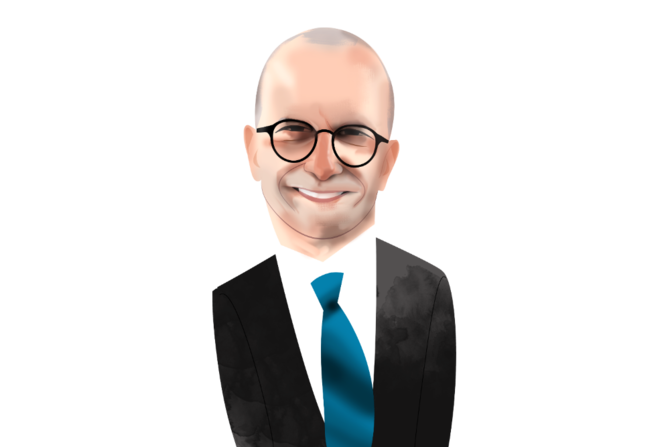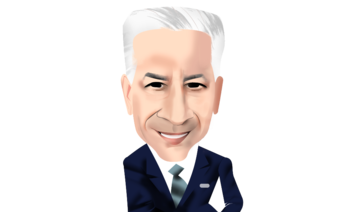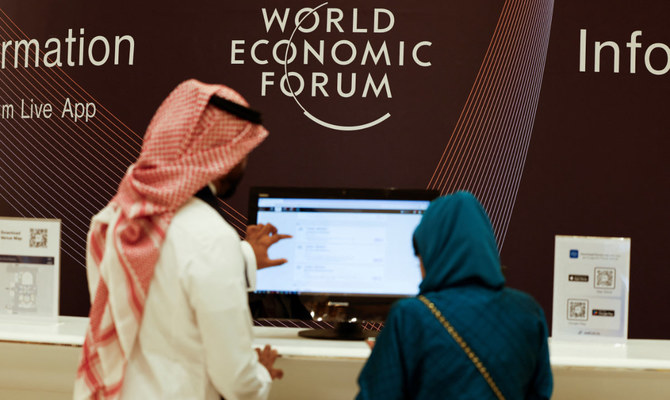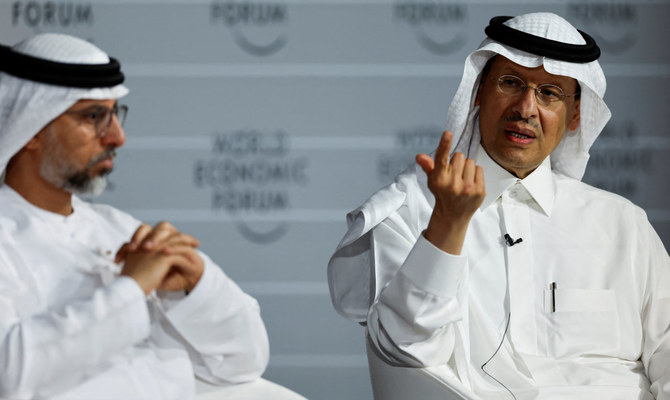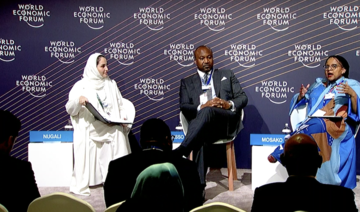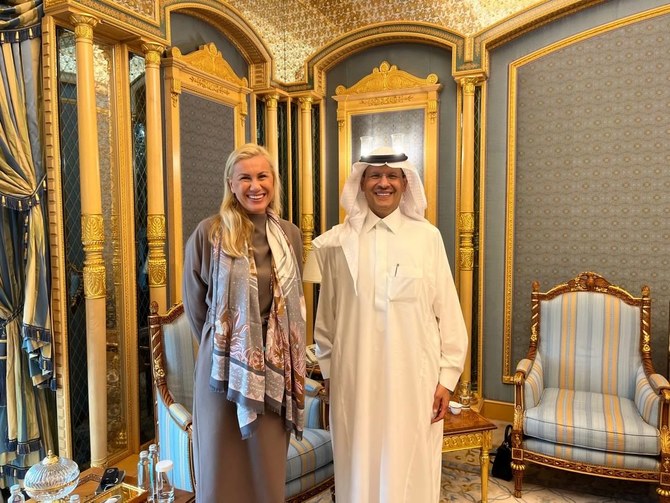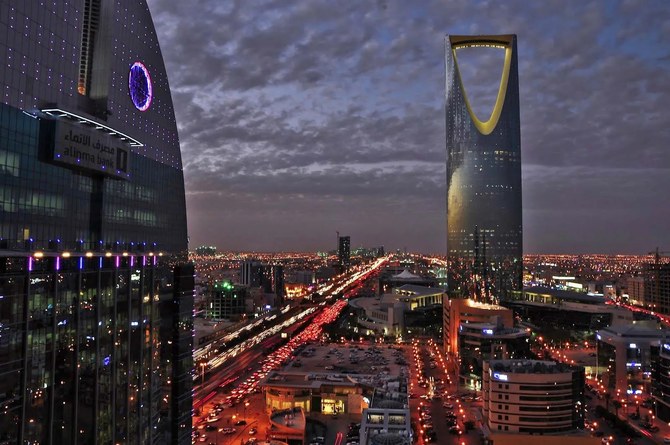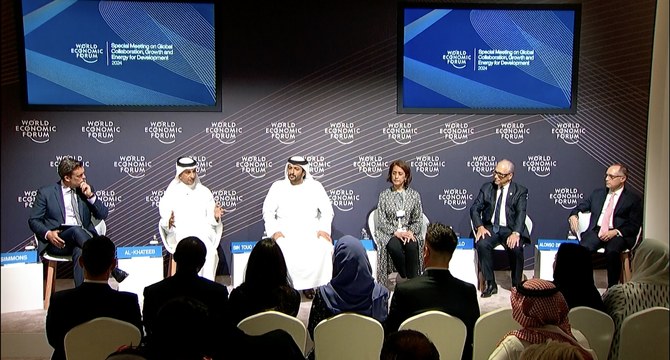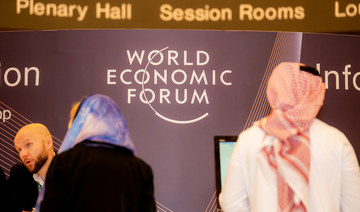DUBAI: The Middle East’s love affair with Rolls-Royce Motor Cars dates back more than 100 years, to the famous motto of Lawrence of Arabia that “a Rolls in the desert was above jewels,” as the wartime hero helped to promote the cause of Arab independence by deploying several armored cars made by the legendary British manufacturer.
Cesar Habib, Rolls-Royce’s regional director for the Middle East and Africa, has a modern version of that saying — “effortless everywhere” — and he applies it especially to the current jewel in the Rolls crown, the Cullinan.
“I remember when we had the first customer events here in the region, I put the customers into the car, and I said one thing I want to know: Did you experience the ‘effortless everywhere?’ And they came back and told me, Cesar, you were spot on,” he said.
The Cullinan — named after the largest diamond ever found — is Rolls-Royce’s latest super-luxury marque, selling for about SR2 million ($533,000, depending on the amount of bespoke work that goes into the model).
It is aimed at the upmarket SUV sector everywhere in the world, but particularly in the Middle East, where it simply ticks all the boxes for the wealthy regional car-lover — a big, luxurious, all-terrain vehicle that tells the world you, the owner, are a person of substance, demanding attention and respect.
“I believe it’s not just here (in the Middle East) but all over the world,” Habib said. “Everyone says they have got the best product on earth, the most exclusive product on earth and the most bespoke product on earth. They know it in Europe, but I think here in the Middle East it’s even more so, because they are really proud to own a Rolls-Royce. Anybody here who can afford one tries to buy one.”
The Rolls-Royce was the car of choice for rulers, princes and sheikhs who suddenly found themselves with huge levels of disposable income after the oil boom took off, and there are stories in the motor trade of mythical fleets of the vehicles sitting gleaming in palaces throughout the Arabian Gulf.
“It’s a car for kings and presidents,” Habib added.
This is what amazes me about bespoke — the interaction with the customer, making just his or her car.
Cesar Habib
Some countries, it is said, will not allow expats to buy Rolls-Royce cars because they are reserved as a mark of royalty; in other places, new Rolls models are held for rulers and royalty first, and only released to the public when the rulers have had their fill.
Habib would not comment on those rumors, but he is sure of the allure of the Rolls-Royce brand. “Everybody knows that when someone buys a Rolls-Royce they want to make a statement about themselves,” he said.
Arab customers make that statement increasingly frequently. The showroom in Abu Dhabi was for several years the best-selling Rolls dealership in the world, and even though it has now been overtaken by a Chinese dealership, the Middle East helped Rolls to the best-ever year in its history in 2018, in terms of vehicles sold.
Rolls-Royce does not provide a breakdown of the number of cars sold in individual markets, but Habib said: “Saudi is a very important market and I think there is room to grow the brand there. How? By investing in the brand further and by being more prominently present in the market.”
In a reference to the transformation underway in the Kingdom as part of the Vision 2030 strategy, he added: “I think all the changes that are going on will play into our hands because we can go and show the brand as it is. We can do more events and invite more people. Previously, we held back a bit. We had conversations with Mohammed Yousuf Naghi (the long-standing dealer in Saudi Arabia) and we both agreed that we would take it to the next level.”
Habib detects some subtle differences in the Saudi market. “There is an increased level of expression among those in Jeddah, for example. They really get creative when selecting a Rolls-Royce — and it is very much a reflection of their more expressive personalities in how they have the car designed.”
The “expression” can reach some extraordinary heights in the Middle East market for Rolls-Royce. After some time working in the “bespoke” part of the Rolls-Royce business — the division that aims to give customers the exact car they want — Habib has a pretty good eye for regional taste.
Unusual color combinations are common, as are the idiosyncratic features discerning customers demand, such as Arabic calligraphy on the bodywork and interior.
“One customer, a collector, said he wanted a car where he could incorporate birthday features for his kids. I want my children to come into the car and look for their birthdays. So, we put a star constellation in the starlight roofing headliner, and we embroidered astrological signs into the door pockets, and in the folding tables as binary codes,” he said.
“Another gentleman wanted to give his wife a Rolls-Royce ‘love story’ for their wedding anniversary, and he designed it with us — a car with flowers inside. Behind each car there is a story,” he said.
Colors of bodywork are just as flamboyant. Cherry pink fuchsia, bright yellow, turquoise outside matching the same shade on the interior upholstery, have all featured in cars Habib has helped customers design. “You can’t argue colors, you can’t argue taste. That’s what I had to learn very quickly,” he said.
“This is what amazes me about bespoke — the interaction with the customer, making just his or her car. I don’t think you find this level of attention or service with any other manufacturer,” he added.
-------
BIO
BORN
•1967 Tripoli, Lebanon
EDUCATION
•German School Lebanon
•University of Passau, Germany, diploma in business administration
CAREER
•Parts consultant, BMW, Germany
•Executive in after-sales, dealer and business development, BMW Dubai
•Executive for BMW in Iran
•After-sales marketing, Dubai BMW
•Global ownership services, Rolls-Royce, Goodwood, UK
•Bespoke, Dubai
•Regional director for Middle East and Africa, Rolls-Royce
-------
There has also been a shift in car driving patterns in the Kingdom, which could accelerate as more women get behind the wheel. The bigger Rolls-Royce models, such as the Phantom and the Ghost, have traditionally been seen as chauffeur-driven cars, but this is no longer strictly the case.
“They could be chauffeur-driven, but it depends on the situation. We find many owners want to drive themselves, but if they go out for an evening, for a function, they have their drivers. People enjoy driving our cars because, despite the fact they are big cars, they are effortless to drive,” Habib said.
The Wraith and Dawn — a coupe and a convertible — do not really lend themselves to chauffeur driving, and Habib sees a big potential market among wealthy women for those models.
And, of course, there is the Cullinan, heading the marketing drive this year, although apparently not much intense marketing was required.
“It has had an extremely positive reception. We had an order bank of nine months before anybody had even seen the car. We gave some people sneak previews, but even from (the information that) came into the press, people said they wanted that car,” he added.
The other essential part of the brand appeal of Rolls-Royce is its Britishness, despite the fact that since 2003 it has been owned by the German manufacturer BMW. “Everyone who thinks Rolls-Royce thinks Britain, they don’t think Germany — the British heritage of that brand, which we really nurture and maintain, it’s very important to keep the heritage of the brand.”
Most of the car’s styling and design is carried out in Goodwood in the UK, the home of Rolls-Royce for many years, while some technology and engineering come from Germany. That would continue, Habib stressed, even if there was a damaging Brexit separation of Britain from the EU.
“I don’t want to be political, but with Brexit we were always very firm in saying that whatever happens we are staying in Goodwood because we are a British brand,” he said.
Habib takes it as a compliment that other sectors of the luxury goods market use the brand name to define the exclusivity of their products — the “Rolls-Royce of watches” or the “Rolls-Royce of boats” — but he is also aware that those sectors provide some of the main competition for the company’s upmarket products.
“The challenge that we have is that we operate in the segment of ultra-high net-worth individuals. We are in the ultra-luxury segment, like some of the watchmakers, jewelry brands, leather goods manufacturers, private jet manufacturers, yacht builders, and the rest. We are in a different environment, competing with non-car manufacturers,” he said.
Habib sees the key part of his job as being as “customer- centric” as possible, and given his background in the bespoke business and ownership services, that is the part of the business he gets most satisfaction from, even expressing some regret he had less time to do this since getting the top regional job for Middle East and Africa last year.
“What I love to do is to talk and configure the car with each and every customer. This I love to do. Each and every customer is special and has their own story. If I had the time, I would like to sit with each of our customers and talk them through it. It’s very rewarding, almost artistic,” he said.
With his German-Lebanese heritage, Habib thinks he is uniquely equipped to carry on guiding customers in the region. “People tell me you are the right mix of Levant and German thinking — accuracy, attention to detail, and disciplined — but also understanding the culture in this region,” he said.



